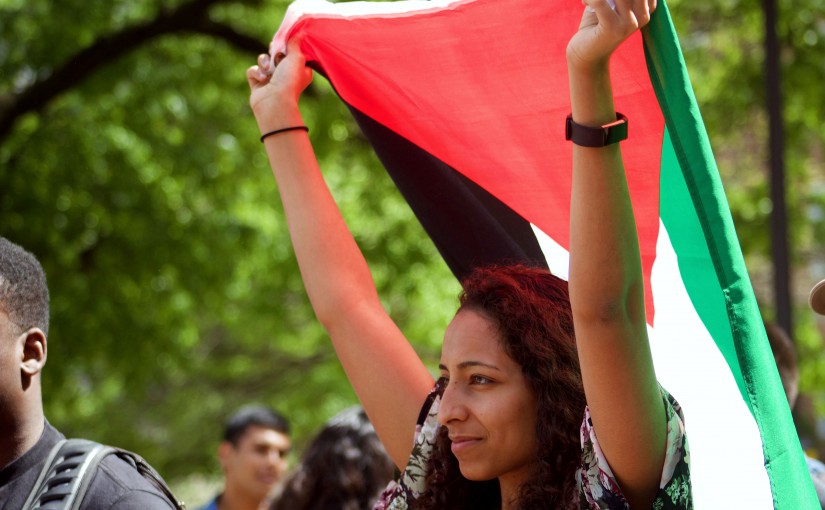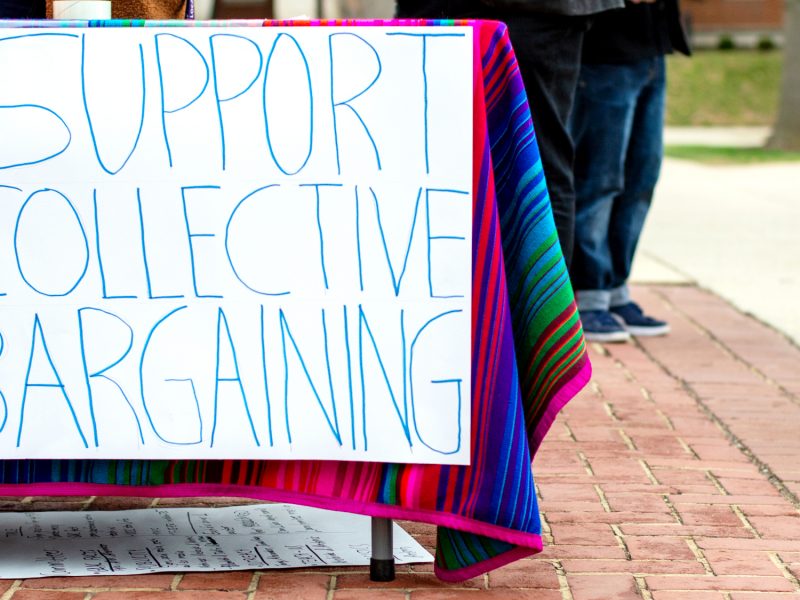Views expressed in opinion columns are the author’s own.
In a recent Diamondback column, Moshe Klein wrote in support of Gov. Larry Hogan’s executive order prohibiting state agencies from doing business with entities supporting the Boycott, Divestment and Sanctions movement.
He argues that while BDS is not inherently anti-Semitic, it “commit[s] anti-Semitic acts” that are “analogous to mandatory minimums for crack cocaine.” He argues that people “should push for a human rights violations boycott” according to international law, including Israel, whereas BDS applies a double standard based on racism.
BDS does not apply any special, extralegal standards to Israel — in fact, each of its three demands are founded in international law. The BDS movement was called for by the Palestinian civil society in 2005 as a non-violent way to demand Israel respect the human rights of Palestinians. A simple survey of the BDS website would have informed Klein that each of these demands is well within the human rights framework he suggests. The three demands are:
“1. Ending its occupation and colonization of all Arab lands and dismantling the Wall;
2. Recognizing the fundamental rights of the Arab-Palestinian citizens of Israel to full equality;
3. Respecting, protecting and promoting the rights of Palestinian refugees to return to their homes and properties as stipulated in UN Resolution 194.”
Why these demands? In 2007, UN Special Rapporteur John Dugard wrote a report that argued Israel is the military occupier of Palestine and that the occupation amounts to colonialism and apartheid — crimes against international law.
In light of this report, the Human Sciences Research Council of South Africa commissioned a legal study of human rights violations in the Palestinian territories Israel occupied. The study investigated these claims within the framework of international law. It found “strong evidence to indicate that Israel has violated, and continues to violate, both prohibitions [against colonialism and apartheid] in the occupied Palestinian territories.”
There are multiple examples of these violations. Israel’s effort to annex East Jerusalem and continued illegal settlement of Palestinian land violates Article 49(6) of the Fourth Geneva Convention.
The HSRC report argues that, “[…] the construction of Jewish-only settlements within contiguous blocs of land that Palestinians cannot enter; a connecting road system between the settlements and the settlements and cities within the Green line, the use of which is denied to Palestinians; and a Wall that separates Jewish and Palestinian populations, as well as dividing Palestinian communities from each other, with passage between Palestinian areas controlled by Israel[…]” constitutes a violation of the Declaration on Colonialism.
The report also finds that Israel has systematically violated Palestinians’ human rights according to Article 2 of the Apartheid Convention, and that Israel has instituted an apartheid regime in the occupied territories. These are just samples of the flagrant, widespread human rights abuses the Israeli government has committed. The government receives $3.8 billion a year in military aid from the United States — more than any other country in the world.
The BDS movement is not disingenuous about its aims and human rights framework. In fact, we consider it one of our great strengths that allows us to connect with other movements for global justice and human rights. Many BDS activists organize and participate in campaigns to address racist laws in the U.S., such as mandatory minimum sentences. BDS activists also work to promote human rights in other countries, such as Egypt and Saudi Arabia.
Klein may be unwilling to engage with these publicly available materials in good faith because of his apologist political agenda. However, you can take this issue seriously. Please read the HSRC report and review the BDS movement’s website.
Students for Justice in Palestine also hosts public events to discuss the human rights framework of the BDS movement and how you can get involved — not just in the fight for Palestinians’ human rights, but for the human dignity of all oppressed people.
SJP is a proud member of ProtectUMD and its members have for years participated in efforts to divest from fossil fuels, oppose mass incarceration, support immigrant rights and protect refugees. The group’s track record speaks for itself.
Shane James is a secondary education graduate student. He can be reached at shane.t.james@gmail.com.


